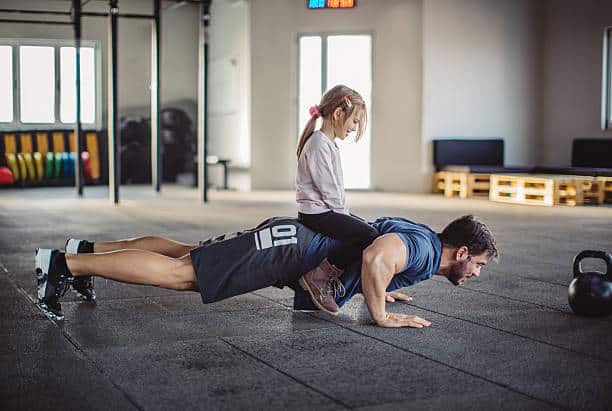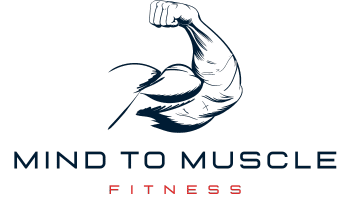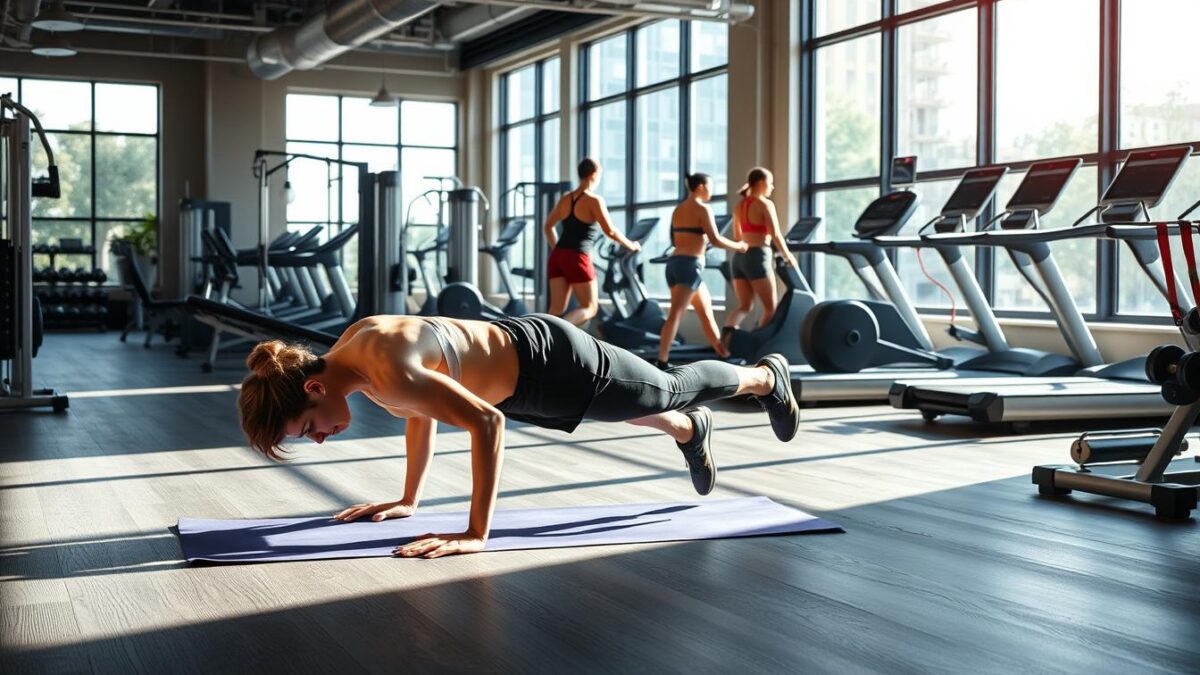
Effective Body Weight Bicep Exercises at Home
Did you know that nearly 60% of gym-goers skip their workouts due to a lack of time or equipment? This surprising statistic underscores the need for efficient and accessible fitness solutions. For those looking to build stronger arms without the need for gym equipment, body weight bicep exercises are a fantastic option. These exercises provide a convenient way to work out from the comfort of your home.
Incorporating a home bicep routine into your daily schedule can be both convenient and highly effective. I discovered these body weight bicep exercises while managing a busy lifestyle, and they’ve become a game-changer for me.
Whether you’re a fitness enthusiast or just starting out, these exercises can easily fit into your routine, helping you achieve your strength goals without the need for expensive equipment.
In this article, I’ll guide you through various bodyweight exercises you can do at home to sculpt and strengthen your biceps. Let’s dive in and explore how simple it is to build strong arms without stepping foot in the gym.
The Benefits of Body Weight Bicep Exercises

There are many benefits to including bodyweight workouts in your fitness regimen. The ability to continue an efficient exercise program without the need for specific equipment is one of the main advantages.
No Equipment Needed
The fact that body weight workouts don’t require expensive gym equipment is one of its main advantages. This makes equipment-free bicep toning the best option for people who are tight on cash or have a small home. It also removes the obstacle of having to buy and store gym equipment, which makes it simpler to maintain your fitness objectives.
Flexibility and Convenience
It is impossible to overestimate the flexibility that body weight exercises provide. Convenient arm exercises are something you can do at home, on the road, or even at the office. You’re more likely to stick with it and incorporate these workouts into your regular routine because of its flexibility. All things considered, body weight workouts are a sustainable alternative for long-term fitness because they are both affordable and convenient.
Getting Started: Warm-Up Tips
Focus on appropriate warm-up exercises to prepare your muscles before beginning body weight bicep workouts. This improves performance and reduces the risk of injury. First, let’s do some dynamic stretching tailored to arm exercises.
Dynamic Stretching
Stretches that are dynamic are crucial for building flexibility and blood flow in the biceps. Arm circles and cross-body arm swings are good ways to warm up your biceps for an impending workout. These stretches are essential to any successful pre-workout regimen.
Importance of Gradual Progression
Hurrying into strenuous activity can lead to strain and damage. It’s important to build up your bicep workout gradually. Start with easier workouts and increase the resistance or repetitions gradually. This methodical technique maximizes the effects of your exercise efforts while ensuring safe and effective strength building.
Body Weight Bicep Exercises to Try at Home

You can successfully improve your strength training regimen at home with body weight exercises. For best results, incorporate these three bicep exercises into your routine.
Chin-Ups
Chin-ups are an excellent bodyweight exercise that targets your biceps. Hold a solid bar with an underhand grip and place your hands shoulder-width apart to do the ideal chin-up. Lift your chin above the bar by pulling your body up, then carefully descend back down. You may minimize the chance of injury and increase your muscular engagement by concentrating on appropriate chin-up technique.
Inverted Rows
You can get great results from inverted rows for your upper body, especially your back and biceps. Use a table or a railing to place yourself beneath a bar so that you may execute an inverted row. Stretch your legs, lift your chest toward the bar, and use an overhand grip on the bar. The versatility of this workout is what makes it so powerful; you can change the angle to suit varying degrees of difficulty and still reap the full advantages of an inverted row.
Isometric Bicep Holds
In order to increase muscle strength, isometric bicep holds require retaining a stationary position. To practice this, use your body weight by resisting the force of your own arms, or pick up a set of light dumbbells. Keep your arms at a 90-degree angle for a duration of 30 to 60 seconds. Because they can be used to target and engage muscle fibers consistently, isometric holds are an excellent complement to any at-home strength training program.
Without requiring expensive equipment, these exercises may efficiently target your biceps and revolutionize your at-home strength training regimen. You may minimize your chance of injury and maximize your outcomes by making sure you maintain appropriate form.
Tips for Maximizing Your Home Workouts

When doing at-home workouts, make sure to maintain perfect technique and include variations in your bicep exercises for optimal results. These techniques not only improve safety but also make a big difference in how effective workouts are.
Maintain Proper Form
To avoid injuries and get the most out of your workouts, use proper form. Exercises for the biceps, such as inverted rows or chin-ups, require precise, controlled movements. Avoid swaying your body, maintain a straight back, and engage your core. In this manner, you may maximize the advantages of each workout and target the appropriate muscles. Additionally, it’s important to balance your bicep exercises with movements that strengthen supporting muscles, such as the forearms and pronators, to ensure overall arm stability. Incorporating pronator muscle workout tips, like performing wrist rotations with light weights or resistance bands, can enhance grip strength and prevent muscle imbalances. By focusing on proper technique and a well-rounded routine, you’ll reduce the risk of injury and achieve more efficient progress.
Incorporate Variations
It’s crucial to include bicep workout variants in your regimen to keep your muscles stimulated and prevent stagnation. Exercise variety helps avoid plateaus and encourage muscle growth. For instance, switch up your weekly routine between isometric bicep grips, inverted rows, and chin-ups. These modifications help to keep your muscles guessing and your workouts engaging.
Common Mistakes to Avoid
When doing body weight bicep exercises at home, it’s easy to make a few common mistakes. One of the most frequent errors is poor posture. Keeping the right form is crucial for both effective and safe workouts. If your shoulders start to slump or your back arches, you’re putting extra strain on other muscles and raising the risk of injury. Always focus on maintaining proper alignment and engaging your core.
Another pitfall is rushing through your reps. It’s tempting to speed up your workout to finish faster, but this can compromise the quality of your exercise. Slow, controlled movements are key to making sure your biceps fully benefit from each exercise. Pay attention to your form and control the pace of each movement to get the most out of your workout.
Finally, ignoring issues with your exercise form can lead to long-term problems. If you spot a mistake, correct it right away. This not only helps prevent injury but also ensures you’re targeting the right muscles effectively. Keep an eye on your technique and make adjustments as needed to stay on track with your fitness goals.



